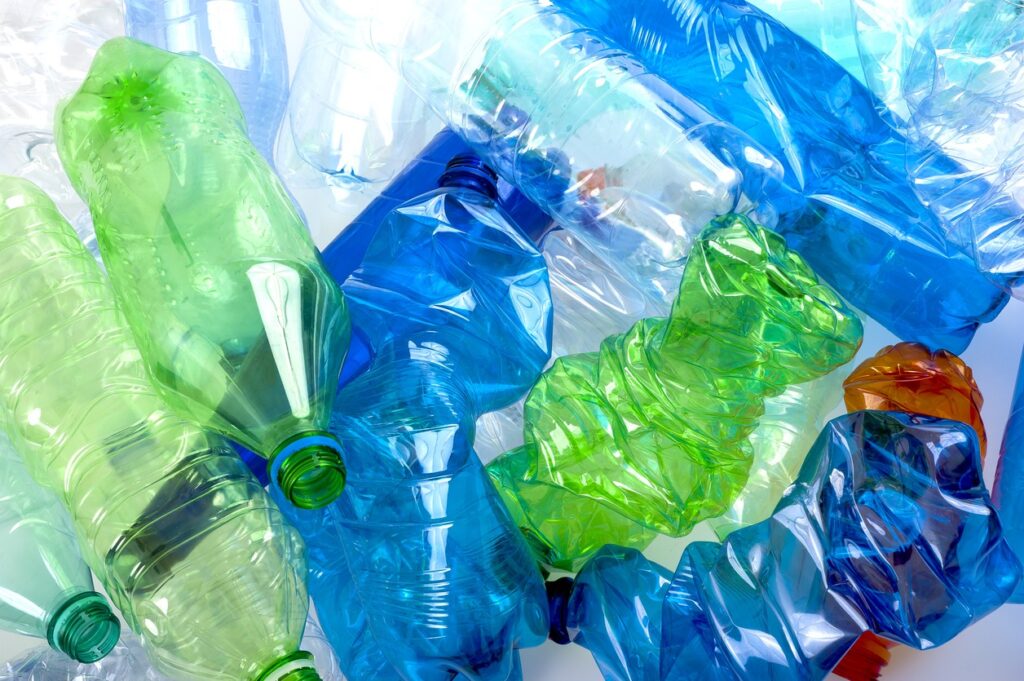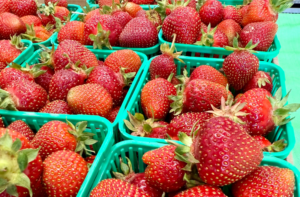While the majority of people have embraced recycling and waste reduction, there are still a number of items we use every day that unfortunately get tossed in the trash. The biggest culprit? Plastic. Here at West 5 we’ve put a lot of thought into making the neighbourhood as sustainable as possible. We know that small changes can have a huge impact. Thankfully, there are many small changes you can make day-to-day that will help to greatly reduce your usage of this environmentally damaging material.
One of the easiest shifts to make is switching out your shopping bags. Reusable shopping bags are now widely available at most retailers for a very reasonable fee. You’ll notice some stores offer heavy duty plastic looking totes – these are great for water resistance and they can usually be recycled, but you’re better off going with something easily cleaned and made from a renewable resource such as cotton, hemp, jute, or linen. If you’re the crafty type, you can even make your own! Don’t sew? No problem, with a quick google search of “DIY shopping bags”, an old t-shirt, and a pair of scissors, you’re ready to go.
Disposable water bottles are another huge source of plastic waste. Not only are they bad for the environment, the leaching of chemicals into the water they hold could have a lasting impact on your overall wellness. Luckily, a lot of attention has been focused on water bottles lately, as a result, there are now a large number of sustainable options in the marketplace for the entire family. Baby bottles, sippy cups, travel mugs and water bottles can be easily found in environmentally friendly metal and glass options. Making the switch is simple and is good for both the environment and your health.
Around the house, opting for homemade natural cleaning products such as dish soaps and laundry detergents is a great way to reduce plastic waste. They smell great and do all of the work without the use of harsh Earth damaging chemicals. Local classes and DIY recipes can be found online for products that are quickly and easily made from basic ingredients. Creation and storage of these products in glass jars comes at just a fraction of the cost of their store-bought counterparts.
Another plastic source that’s often not considered is plastic children’s toys. One quick look at the toy department will quickly reveal what a large contributor this is to plastic waste. Thankfully, manufacturers and retailers are starting to take note of the public’s increasing desire to move to a more sustainable, eco-friendly lifestyle. There are now many brands producing toys made of sustainable sources, renewable woods, or recycled materials. Even better? Most don’t require batteries, encouraging creativity and imagination with minimal environmental impact.
Now for the question on everyone’s mind – what about the leftovers? Food storage is something that still leaves many reaching for the plastic, but that doesn’t need to be! There is a glass or metal option for nearly everything, from storing your leftovers to packing your children’s lunch – utensils included! These days there are even reusable fabric or silicone snack bags. Not ready to give up the disposables just yet? Opting for aluminum/tinfoil which can be rinsed and recycled with your containers here in London is a great first step. Alternately, look for items made from a material called “bagasse” – that’s the pulp leftover after all of the juice has been extracted from sugarcane, a renewable plant. Bagasse is a great raw material to make products including bowls, plates, and storage containers. It’s 100% biodegradable and compostable, and it breaks down in 30-60 days providing nutrients back to the environment. It’s also heat and cut resistant, liquid secure and freezer safe.




